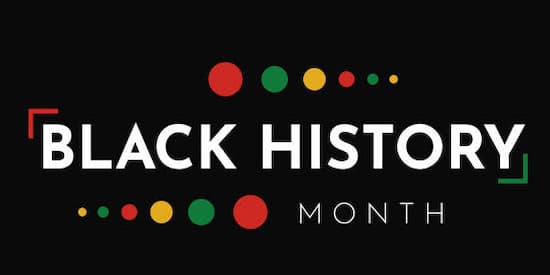Black History Month is an annual celebration of achievements by African Americans and a time for recognizing their central role in U.S. history. Also known as African American History Month, the event grew out of “Negro History Week,” the brainchild of noted historian Carter G. Woodson and other prominent African Americans. Since 1976, every U.S. president has officially designated the month of February as Black History Month. Other countries around the world, including Canada and the United Kingdom, also devote a month to celebrating Black history.
We asked Cherai Lewis, CMP and Board Liaison for the DEI Committee, GMC-PCMA the And Jatare Barrett, Meetings Manager for the American Planning Association the following question:
Do you have any early memories of Black History Month? How was it celebrated in your school, community, church?
Cherai:
“My Black History education came from my family and my community elders, and not from my elementary and secondary schools. This was mainly because unless there were Black teachers and or principal(s) at my integrated Southern US schools, the Black History displays and presentations at school were minimal or non-existent.
My family and my community elders helped me learn and appreciate the strength of MY ancestors. And while the teachings and community gatherings celebrating Black History were amped up in February for Black History Month, they taught me Black History 24/7/365. My Sunday School teachers, my Black Girl Scout troop leader and Black organizations such as Delta Sigma Theta Sorority, Inc. (my Mom’s sorority, of which I am now also a member) and Alpha Phi Alpha Fraternity, Inc. (my Dad’s fraternity) shared the accomplishments (and overcoming the many struggles) of amazing Black men and women. I was encouraged to read written works by poets Langston Hughes and Phyllis Wheatly, books by authors Maya Angelou (“I Know Why the Caged Bird Sings” – 1973), Ernest J. Gaines (“The Autobiography of Miss Jane Pittman” – 1971) and Alice Walker (“The Color Purple” – 1982). When the book “Roots” by Alex Haley (1976) was made into a television miniseries in 1977, I remember my parents watched it with their friends; and they would answer my many questions the next day.”
Cherai Lewis, CMP is a Strategic Business & Community Development Executive for the Cherai Lewis Consulting Group.
Jatare:
“My early memories of Black History Month pertained to school typically involved doing a report on a prominent black leader from the days of Civil Rights. Martin Luther King Jr, Rosa Parks, Malcolm X and Frederick Douglass were almost always in circulation for those reports.
My North side community was filled with immigrants from Russia, Poland, Ethiopia, Eritrea, Nigeria, Korea, China, and India. My childhood friends were diverse, many being first generation Americans, and some very unaware of the history of America and its part in slavery and subsequent issues with race.
My family and church did not celebrate Black History month. It was an unspoken understanding that this month was for others to learn about the magnitude of the African American contribution in building the economy, infrastructure, and foundation of this nation. In my family, Black history month was a reminder of how far we’ve come, we aren’t there yet, and to keep going. It is also a reminder to stay vigilant. It took many unspeakable horrors to get civil rights and it only takes an ink pen or taped text to take it away. “
Jatare is the Meetings Manager for the American Planning Association and is a member of the GMC-PCMA DEI Committee.
We thank both Cherai and Jatare for their stories.
Submitted by Leslie Sargeant, DEI Committee


